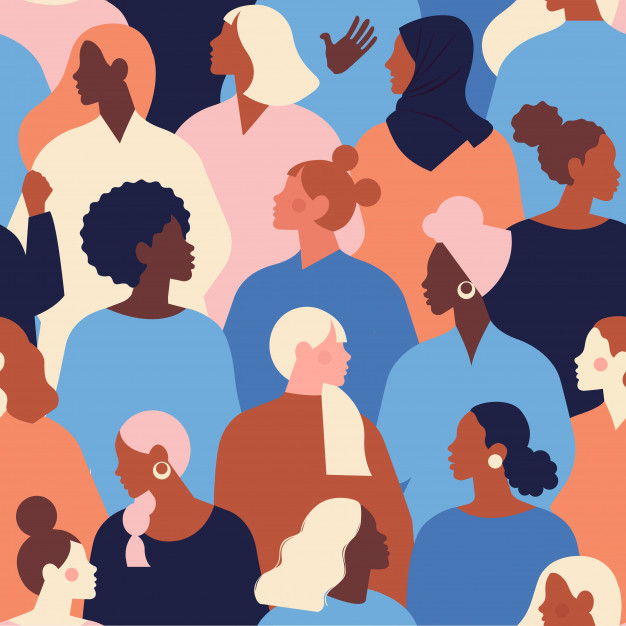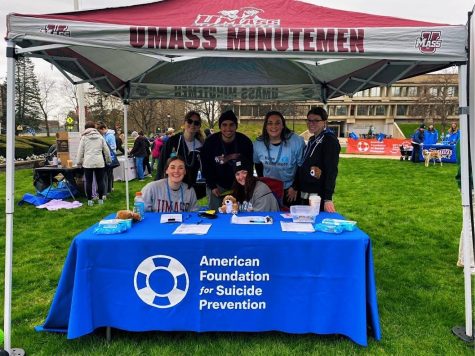What I Wish I Knew
A collection of words of wisdom by women in college, for women entering college
A string of unread direct messages from him flooded my screen, beginning with asking how I was, to begging for me to come over. A boy I had only met in person once and exchanged a polite “hello” to. A boy I owed absolutely nothing to yet somehow always felt guilty ignoring. As if I had done something to make him feel his constant pestering was okay as if it was my duty to oblige.
It was 3 a.m. on a Saturday night. The library is awfully quiet on Saturday nights. It’s quiet around 3 a.m. regardless of the day, but there’s something eerie about being trapped in a room full of books and laptops when the only thing separating you from the drunken crowds outside is a revolving glass door.
My social media notifications are always turned off. If they weren’t I would open the app I got the notification from right that second and never get anything done. When one is procrastinating, Snapchat proves to be a beautiful distraction.
I remember I had a paper due on Monday, maybe it was for my Anthropology class, a dissection as to why excavating ancient human remains is unethical. Or maybe it was for my Greek Mythology lecture, eight pages explaining how female villains almost always use sex as a weapon. It doesn’t really matter what it was on, I had a paper due on Monday that I had spent all week procrastinating and I was determined to get it done that night.
I had just turned 18, entering UMass without even having had my first kiss yet. My pickiness and high standards with all aspects of life extended to romance. It was my first semester of college, everything was so new to me and I was so scared.
I responded to him with a cordial, “I’m okay, thank you,” and prayed that would be the end of the conversation. Of course, I was wrong. He continued blowing up my phone, saying I should not be walking home from the library at this hour anyway, he could pick me up and I could finish my work at his place, he was just trying to be a good friend and why was I being so standoffish?
Right. I don’t know why I accepted. I think it was a mix of being too trusting, and having rejected him so many times that I felt guilty doing it once more. Besides, he promised me a million times he only wanted to make sure I got home safe, and help me with my work. He was a good guy, he respected women, he wouldn’t try anything I didn’t want.
I ended up turning in my paper on time that Monday. All I could think about was the fact that maybe female villains use sex as a weapon because that is all that is expected of them.
It doesn’t feel real until it happens to you. You think you can be careful, be at the right places, avoid the wrong people. It doesn’t feel real until your tears are soaking into your therapist’s red leather chair about someone who most likely doesn’t even remember your last name.
♛
A 2019 study by the Association of American Universities documented that 26 percent of women in college reported nonconsensual sexual contact involving physical force or inability to consent or stop what was happening. A number merely addressing the women that came forward about it.
“I was not expecting to encounter sexual harassment even though we all had to complete those online courses before coming to college,” said junior dietetics major Hannah Cavaretta. “My mom never talked about any sort of sexual encounters that I might experience at school, and I sort of wish she did because I did not know what I was about to get into.”
Cavaretta remarked that the lack of advice regarding sexual encounters may be due to the fact that her mother did not have to face modern-day, glorified hook-up culture.
“It’s basically all everyone does, a repetitive cycle of drinking and partying, finding someone to spend the night with, seeing if that person could be the one and if they’re not you repeat the cycle,” said Cavaretta. “I guess that when people said boys only want one thing they were being very serious.”
There’s a very clear double standard when it comes to college hookup culture, with men being praised for sleeping with a lot of women, while women who sleep with a lot of men are degraded, torn down and “slut-shamed.”
A 2018 study by the Hawaii University International Conferences explored double standards such as “slut-shaming” through surveying 232 undergraduate college students. In one question, the participants were asked if the way a woman dresses justifies her being characterized as a slut, 79 percent said yes. Meanwhile, only two percent of the participants agreed that the same could be said for a man’s choice in clothing.
“People tell you to do what you want to do but then they judge you for it. There are so many double standards,” said Cavaretta. “I want to have the same rights that men do, and I don’t want to be looked down upon for it. I don’t want to feel like a body to men, I want to feel like a strong woman who has a brain.”
In an atmosphere where women are belittled for merely being themselves, Cavaretta soon learned the critical importance of independence and self-love, and how everything else falls into place when you know your own worth.
“Self-confidence is so important because you need to know that it’s okay for people to be different from you. Being different is what makes everyone so special,” said Cavaretta. “It’s okay that you got a bad grade on an exam, or that the boy you like doesn’t like you back. You’re going to face a lot of hardships that seem so serious in the moment, but in the big picture won’t matter when you look back. If you know who you are and you’re confident about it, you know that you work hard for what you want and that good things will come to you.”
Cavaretta reflects on how realizing the gravity of self-love earlier on would have prevented her from many of the worries and stresses she encountered along her college journey.
“The most important advice I wish I was given before I came to college was that you’re not going to know exactly who you are, what you like or don’t like to do, and sometimes you’re going to lose sight of what’s important,” said Cavaretta. “What really is important is to grow, be the best version of yourself that you can be, and be confident in yourself. Surround yourself with people who want you to do well. Do things that make you feel happy.”
Like Cavaretta, many of us come to college being trusting, more vulnerable than we are now, unaware of certain dangers. For many of us, this trust slowly diminishes from the experiences we endure as women.
♛
“There are good guys and there are guys that are not as good, but I’ve learned that a lot of first impressions are deceptive, so I am now much less trusting of men,” said freshman communications major Sky Quiros.
Growing up in the small town of Longmeadow, Mass., Quiros knew everyone from her middle school years or before. She did not have to have her guards up nearly as high as she realized she had to build them in college.
Quiros recalls an instance in her first semester of UMass in which a man invited her to do math homework with him, seeming very friendly and giving no signs that he had other intentions. Their plan to study in a common room fell through when they walked in and realized it was filled up, he then suggested they study in his room.
“Instead of doing work he was super flirty and was trying to make sexual advances which I was not reciprocating. So I ended up leaving and I guess I learned that college boys are sneaky, and things are not always what they seem,” said Quiros. “I wish I had known that people’s intentions are not always pure. Coming in I would say I was a bit naive and I just wish I had known to be extra cautious when it comes to some people. You never know what men have hidden agendas or are just pretending to be your friend until they can make a move on you.”
No one from Quiros’ family had previously lived on a college campus, making it difficult to warn her about experiences they had not faced themselves. Quiros did not know what to expect, but it certainly was not the disrespectful boldness of select men.
“I would’ve never imagined cat calling in the dining hall, all of that was so weird to me at first especially coming from a small high school,” said Quiros.
Quiros suggested a seminar on sexual harassment and staying safe could help a lot of students such as her, who had to learn these rough lessons on their own. Yet, seminars can only go so far if there is not a shift in culture.
“What I wear, the way I look or anything I do will never make it my fault if a man takes advantage of me. That is on him and society,” said Quiros. “So the culture needs to change and focus on teaching men to be decent humans that know how to act.”
♛
Deception of first impressions is something sophomore nutrition and Spanish double major Carolyne Elias can sympathize with all too well. For many incoming freshmen, their first impression of upperclassmen is as mentors, people they can look to for guidance.
“I thought their [upperclassmen] intentions would always be to have my back in a way. Give me a heads up of things, places and people I should avoid,” said Elias. “As males, they can be physically stronger too – making me assume they would protect me if I needed it.”
For many upperclassmen, their first impression of first-years is “fresh bait,” according to Elias. Because freshmen are new to college, many are unaware of “norms” such as what house parties are the best, what time everyone usually goes to dinner, and the fact that many upperclassmen take the word “bait” far too literally, forgetting people aren’t meat to lure in and discard.
“I realize now that freshmen are so vulnerable. As a woman, I would have wanted to be properly told by someone to be careful because being ‘new bait’ is so deceiving. I had no idea the attention it would draw, the looks I would get by upperclassmen plotting for the vulnerable new girls,” said Elias. “It is actually disgusting how the egos and reputation of upperclassmen athletes especially get thrown on younger girls, making them believe and think things far from the truth. Instead of looking at upperclassmen as protectors, examples and advisors, I wish someone told me to avoid most of them and stick to my own.”
While Elias did not get specific advice regarding the predatory nature of many upperclassmen, her family and friends instilled in her the lesson that a desirable physical appearance is not necessarily the target, the mind is.
“Young women should not think leggings and a crop top makes them the issue to attract these upperclassmen or these egotistical campus males,” said Elias. “They need to establish a strong and stable mind, more awareness and wisdom because sadly, the naive ones get abused the most.”
Elias believes it’s fruitless to count on educators to teach young men the proper ways of treating women, as a lot of school systems have set in place the idea that women are the ones to blame for the behavior inflicted upon them.
“It isn’t a perfect world, but as women we need to be strong. Particularly young women, because strong women scare weak men.”
♛
It takes a strong woman to not only be a leader, but to defeat the notion that it is a man’s duty alone to lead. In almost every profession, women are forced to fight significantly harder to acquire leadership roles that are largely populated by men.
A 2018 report by the American Bar Association stated that in the legal profession women are 45 percent of associates, but only 22 percent of partners and 19 percent of equity partners.
In a study by Catalyst in 2018, it was reported that women constitute 61 percent of accountants and auditors, 53 percent of financial managers and 37 percent of financial analysts. Yet, according to a study by Fortune in 2018, only 12 percent of women make up the body of chief financial officers in Fortune 500 companies.
Senior art-therapy major, Rebecca Mandy, recalls one of her biggest surprises in college coming from herself.
“As a woman in college, I was not expecting to get the leadership opportunities that have been presented to me. I have always expected the men in the world to take over any leadership role there is, that is all I have known and seen my whole life,” said Mandy.
Mandy feels embraced and supported in every way within her leadership position in the BDIC department.
“I was seen as a person who has a lot to offer and I never felt this in an academic setting before,” said Mandy. “To finally be pursuing my dream career has been life-changing, my passion and zest for learning were recognized and this felt great.”
While Mandy is now at peace living the life she worked so hard to achieve, her college journey did not begin this way. There were many obstacles she had to tackle before the storm passed.
“The beginning of college, in my opinion, is the hardest. You are thrown into a whole new environment and everyone wants to put their best foot forward, to step into a new version of themselves,” said Mandy. “I think we’re all confused and just trying to get by. This time in college is where I experienced a lot of heartbreak because I was let down by people on small and large scales.”
Mandy doesn’t drink, a fact that her friends are aware of. She recalls a moment she was let down regarding one of her friends not respecting this boundary. Her friend’s birthday was coming up, and she asked Mandy to drink with her, given it was her birthday.
“This was hard because someone who I thought was my friend was putting me in a tough position and wanting me to change myself to make her birthday ‘better,’” said Mandy. “I was used to this type of conversation with random people I barely knew, but with a friend, it was challenging.”
The National Institute of Alcohol Abuse and Alcoholism published a fact sheet in 2020 stating that almost 55 percent of college students ages 18–22 drank alcohol in the past month, and more than one out of three of them engaged in binge drinking during that same timeframe.
“Before coming into college I wish I knew it was okay to be misunderstood for not participating in things like drinking that are expected in the college experience,” said Mandy. “I wish that I could prepare myself by saying it will be hard but worth it and that nothing is worth sacrificing my authenticity for others’ comfort.”
Because Mandy stood her ground and did not give in to peer pressure, more obstacles presented themselves to her that she would not have to face if she took the seemingly “easy” way out.
“I think it would be easy to say that I never felt the need to change who I was because of the pressure, but when 99 percent of people are participating in something and I’m not, there are moments where I question myself,” said Mandy. “I believe that this is a part of the struggle and growth through keeping true to myself but it is definitely tough. Something I remind myself is that anyone who is judging or pressuring me is doing so because of how they feel internally, whatever that may be.”
Mandy acknowledges how important a support system is to have in college, especially when it comes to tackling obstacles such as peer pressure. She is grateful to have had her siblings, friends, boyfriend and therapist by her side.
“Having the people who want to support me in being the best version of myself has always reassured that even when I am misunderstood,” said Mandy. “I should always stay true to who I am and to not change for anybody.”
While her support system aided in guiding her through college, it was prior to college that she received a wealth of advice from them as well.
Advice such as not to walk alone at night, not to take a drink from a stranger, not to Uber alone and to focus on schoolwork above all.
“I wonder if the parents or friends of men who go off to college tell them ‘don’t rape, drug, abuse or harass women’ before they go to college,” said Mandy. “Women are always in survival mode, we have to be on edge at all times. It is unsettling to know that once you’re out in the world on your own for the first time you are immediately at a disadvantage.”
It’s easy to turn cold as a woman, to let the manipulation of your openness make you distrust the whole world. When Mandy finds herself forgetting the importance of her vulnerability she turns to one of her mantras said by professor and author Brené Brown, “strong back, soft front, wild heart.”
♛
I am lucky enough to have been raised and surrounded by strong, intelligent women. Women that warned me of the perils of growing up, yet did not make me fear how beautiful life is regardless. I have always landed on my feet, looked both ways before I crossed the street. I have taken every preventative measure to follow the advice my mother drilled into me.
We can be cautious, we can be careful but nothing will change until there is a strong shift in culture, creating a world where women can be themselves and not have to apologize for it.
Before coming to college, I wish I knew that the mistakes of others are theirs alone and do not reflect on me. I wish I learned how to forgive myself and understand how to put me first.
I wish I soaked in all the times I was told, “never stop being a good person because of bad people.”
Email Astghik at [email protected]












